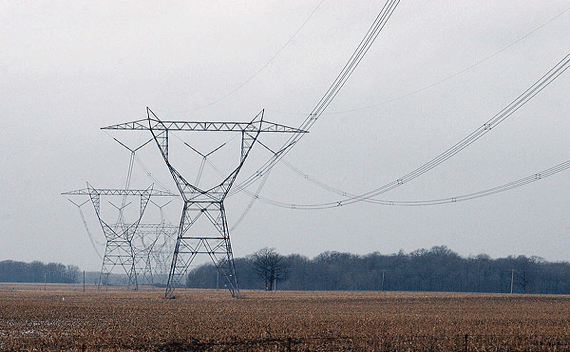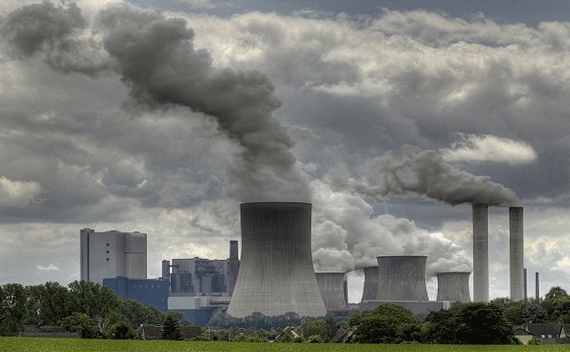Mangling Energy Efficiency Economics
More on:
Switch to a more efficient car, and you’ll drive a bit more, since extra gasoline now costs you less. This well-known phenomenon is known as the “rebound effect”. In the case of cars, it eats up about ten percent of the fuel savings from greater fuel efficiency. But at the level of economies, many believe, it’s much worse. All the money saved through more efficient automobiles and better refrigerators doesn’t just mean more summer road trips and Sub-Zeros – it means more money pumped into the whole economy, and hence greater emissions overall.
That’s a minority view, for good reason: it’s wrong. But in a long essay in the new issue of the New Yorker, David Owen buys it hook, line, and sinker. He’s enamored of the work of 19th century British economist Stanley Jevons, and while Stanford’s Lee Schipper clearly spent oodles of time trying to explain to him why what Jevons wrote doesn’t apply to today’s economy, Owen isn’t believing him for a second.
I was planning to go through the article and pick apart every instance of silly logic, but those piled up so high that that goal became unrealistic. Instead, let me focus on two passages that capture the essence of Owen’s mistakes. Here’s the first:
“[Energy Secretary] Chu has said that drivers who buy more efficient cars can expect to save thousands of dollars in fuel costs; buy, unless those drivers shred the money and add it to the compost heap, the environment is unlikely to come out ahead, as those dollars will inevitably be spent on goods or activities that involve fuel consumption – say, on increased access to the Internet, which is one of the fastest-growing energy drains in the world…. Schipper told me that economy-wide Jevons [i.e. rebound] effects have ‘never been observed,’ but you can find them almost everywhere you look: they are the history of civilization.”
How about we do a little simple math? Every dollar I spend on gasoline is, crudely speaking, a dollar spent on energy. (I say crudely because I’m including money spent on things like marketing and delivery.) On the other hand, as Owen acknowledges in the article, energy spending is equal to only 6-8% of GDP. If I save $100 on gasoline, I’ll spend it roughly the same way that I’d spend any other $100. This means that I’ll spend $6-$8 of my savings on more energy. (The number may be a smidge higher, since I may buy things produced elsewhere, where energy is a bigger fraction of GDP. [UPDATE: It’s actually plausible that the number might be 2-3X higher, since my spending gets multiplied as it flows through the economy. But the qualitative conclusion doesn’t change.]) The net result will be the consumption of $92-$94 less energy; there is a rebound effect, but it doesn’t come anywhere close to wiping out the gains. Schipper basically makes this point to Owen, without the numbers and without confronting this specific example; why Owen can’t see what it says about this particular case is beyond me.
Let’s drill down on the Internet bit for a moment, which slides quickly into absurdity. Say I do shift my $100 in savings to increased Internet access, as Owen suggests might happen. For my fuel savings to be wiped out, as Owens thinks will be the case, those Internet services will need to use the same amount of energy that I’ve saved. That will cost my Internet provider $100. (It pays the same rates for energy as I do.) How will it pay for everything else required to give me Internet services? The equipment? The people? The software? Will the provider give all that to me as a gift? Because in Owen’s picture, it’s already spent all my money on fuel.
Here’s the second representative passage that I want to look at:
“In less than half a century, increased efficiency and declining prices have helped to push access to air-conditioning almost all the way to the bottom of the U.S. income scale – and now those same forces are accelerating its spread all over the world.”
Owen repeats this theme over and over – people are using more energy, so how is it possible that efficiency has helped? I have no doubt that “increased efficiency and declining prices” help spread air conditioning. But let’s observe two things. First, declining prices appliance prices have nothing to do with increased efficiency – in fact, everything else being equal, increased efficiency leads to higher prices appliance prices (because the equipment seller captures part of the energy cost savings). Second, Owen is missing something huge: income growth. In fact, my guess is that the spread of air conditioners (as well as cars and other such things) is driven mainly by the facts that people have more money to spend and that the devices are cheaper. The reduced cost of fueling them, I suspect, is a distant third.
I don’t mean for this to be a paean to energy efficiency – I’m actually quite skeptical of many energy efficiency policies. But it’s useful to get our facts right.
More on:
 Online Store
Online Store

